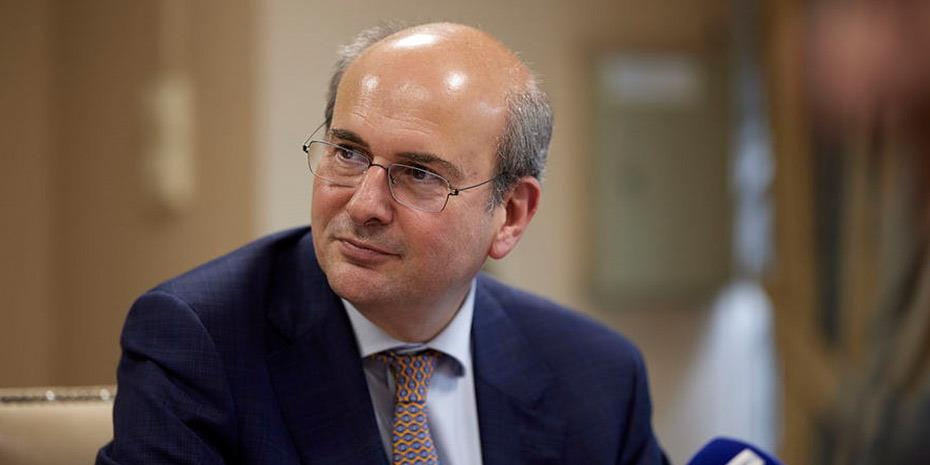
Finance Minister Kostis Hatzidakis referred on Wednesday to the significant progress of the industry in the last four years, presenting the next steps included in the planning of the Ministry of Finance.
"In recent years, the myth has been cultivated in Greece that there has supposedly been complete de-industrialization, that every production process has stopped and Greece has become exclusively a service economy. In reality, the data show that in recent years there has been very significant progress, I would say a renaissance of manufacturing and industry," he stressed during his speech at the 8th Annual Economic Conference of the Hellenic Business Association.
The minister cited the relevant official statistics. At the same time, again based on ELSTAT data, in 2023, compared to 2019, we had an increase of more than 7% in the number of workers in industry. While, based on European Central Bank data, manufacturing productivity growth between 2019 and 2023 reached 20.4%."
FOREIGN INVESTMENTS
At the same time, investment has increased by 53% since 2019, which is the largest increase in the whole EU, Our exports have doubled between 2008 and 2023 to reach 98 billion euros, while in the period 2020-2022 the share of goods in exports significantly exceeded the share of services and in 2023 the ratio was about 50-50 (while previously the ratio was 2 to 3). At the same time, the share of high-tech exports in total exports of goods has increased.
"There may not have been a revolution, but the direction is positive. And in any case, there has not been de-industrialisation," Hatzidakis noted, adding: "Thus, those who claim that Greece 'does not produce a pin' are refuted."
"On the contrary, the increase in investment and exports is proof that our production model is gradually diversifying. And of course it is linked both to growth rates that are several times higher than the European average and to the very significant reduction in unemployment. In addition to the efforts of businesses and employees, this progress is the result of an economic strategy that combines fiscal responsibility with a pro-investment stance. If we don't have positive developments in the economy, how have half a million new jobs been created?" he asked.
ENERGY TRANSITION
Hatzidakis made special reference to energy, highlighting the progress made in the green transition, which will allow the country to move from being an importer to becoming an exporter of energy. "This is a factor of optimism for the country, for its competitiveness and its prospects, not only in environmental but also in economic terms," he said. "However, a substantial European policy is also needed, especially in the area of networks, as the Draghi report rightly points out."
Presenting the next steps included in the programming, the minister mentioned, among others:
The new incentive framework for mergers, acquisitions, research and innovation, included in the tax bill, is currently under consultation. He said that the new framework will be the most competitive framework for these issues in the EU. "Because before we adopted it, we looked at what is in place in other EU countries and tried to go up several rungs," he said.
On continuing the drive for a more robust banking system that provides liquidity to the market, with a stronger 5th pillar, increased competition and an extension of the Hercules programme that will lead to a reduction of red loans at the European level.
On training issues, noting that the policies implemented during his time as Labour Minister also emphasised skilling and reskilling in modern green and digital skills. "A modern economic policy cannot ignore the need to continuously upgrade the skills of the workforce. That is why we as a government have put forward training programmes in modern skills, which will have benefited a total of over 700,000 workers and unemployed people in the coming years. The effort must continue and intensify, with a focus on a more transparent and effective training certification system and by encouraging in-house training, which businesses should view more warmly," he added.
TAXES
On continuing to cut taxes. He claimed that the government was taking into account all proposals, including those from the Hellenic Businessmen's Association. "I don't want to say that we have come to a conclusion and false news will come out; I am saying that further tax cuts are in the spirit of the government because we want to support competitiveness. But we measure every time before we go ahead so as not to jeopardise the objective of fiscal stability," Hatzidakis stressed. He added:
"Since 2019, we have cut more than 60 taxes: the corporate income tax from 28% to 22%, the capital gains tax, the tax on dividends, ENFIA, and the introductory rate in the scale for lower incomes. Indirect taxes also decreased, especially on transport It is no coincidence that Greece, according to Eurostat, had the largest tax reduction as a share of GDP among EU countries, from 42.8% in 2022 to 40.7% in 2023. And the new tax bill includes 12 new tax cuts for 2025. And we don't stop here. Because our model combines growth with reducing tax evasion. So with lower taxes we get more revenue. It is, he concluded, a policy that also sends a message of fairness, particularly for law-abiding citizens, but it certainly has a growth bias."






